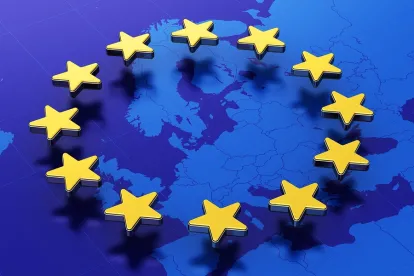EXECUTIVE SUMMARY
Dr. Henrik Holzapfel | Christian Dölling | Dr. Veit Q. Lindholz | Laura Morelli | Charles de Raignac
From a German perspective, 2020 saw highly interesting developments that may well have an impact even beyond the borders of Germany. For example, the Federal Court of Justice (Bundesgerichtshof) in Sisvel v. Haier handed down a landmark decision on fair, reasonable and non-discriminatory (FRAND) law. This decision has already affected many FRAND cases tried before lower instance courts. Generally speaking, the FRAND law judgments issued in Germany in 2020 may have more upsides for standard-essential patent (SEP) holders than for implementers of standardised technologies.
A successful constitutional complaint against the German act to ratify the Unified Patent Court (UPC) Agreement delivered a serious blow to the attempt to establish the UPC. However, German Federal Parliament and Federal Council managed, just before the end of 2020, to pass another UPC ratification act, thereby rectifying the mistake that led to the success of the constitutional complaint. The fate of the UPC project remains somewhat unclear, however, in light of newly filed constitutional complaints.
Finally, 2020 saw the United Kingdom officially withdraw from the European Union on 1 February and become a third-party country after a transitional period that ended on 31 December. This event has multiple consequences for EU intellectual property rights, particularly EU trademarks, depending on whether they were filed or registered as of 1 January 2021.
GERMANY AND THE UPC
Dr. Henrik Holzapfel | Christian Dölling
In 2020 the German Federal Constitutional Court (FCC) (Bundesverfassungsgericht) ruled on a constitutional complaint filed against the act by which Germany sought to ratify the Unified Patent Court (UPC) Agreement. The UPC is intended to be a court common to certain EU Member States and would have exclusive competence in respect of European patents and European patents with unitary effect. The FCC upheld the constitutional complaint against the ratification act, arguing that although the act was passed unanimously in the German Federal Parliament (Bundestag), the vote lacked the required quorum.
Months of speculation followed as to whether this FCC decision would mark the end of the UPC project. For example, in May 2020 the European Commission was asked to confirm that Germany had no right to ratify the UPC Agreement in its then-current form. In July 2020 the Commission denied such confirmation, stating that the “Commission would welcome a swift ratification of the Unified Patent Court Agreement by Germany”.
The German Federal Council (Bundesrat) passed a renewed draft ratification act on 18 September 2020. Subsequently, the renewed ratification act entered the Federal Parliament for its first reading. On 26 November 2020, the UPC Agreement received its second and third readings in the Federal Parliament and was approved by 570 members, thus achieving approval by more than two-thirds of the 709 Federal Parliament members. It was this quorum that had not been met for the previous ratification act, leading to the successful constitutional complaint. On 18 December 2020, the Federal Council approved the act, which will enable Germany to ratify the UPC Agreement.
The remaining steps required for the ratification act to enter into force are signatures by the federal chancellor, by the competent federal minister and by the federal president, as well as publication in the German Federal Law Gazette (Bundesgesetzblatt). Particularly critical is the signature by the federal president. In the previous ratification attempt, the president, upon request by the FCC, withheld his signature while the FCC continued to consider the then-pending constitutional complaint.
On 18 December 2020, two new constitutional complaints were filed against the current German UPC ratification act. It remains to be seen whether history will repeat itself, and if and when Europe will finally have a UPC.
Once ratified by Germany, the UPC Agreement will come into effect on the first day of the fourth month after the month in which Germany’s instrument of ratification is deposited with the Council of the European Union. A provisional period will then begin, allowing final practical preparations to be made in advance of the UPC hearing cases. The UPC is expected to open its doors in 2022 at the earliest, save any constitutional issue in Germany.
GERMAN FEDERAL COURT OF JUSTICE ON FRAND LAW: SISVEL V. HAIER
Dr. Henrik Holzapfel | Christian Dölling
On 5 May 2020, the German Federal Court of Justice (FCJ) issued its decision in a landmark case regarding SEPs and FRAND licensing of SEPs. The judgment was handed down in litigation between the Sisvel patent pool and Chinese consumer electronics manufacturer Haier (FCJ docket no. KZR 36/17). The judgment has started shaping FRAND licensing negotiations and affects the enforcement of SEPs before German courts.
Key takeaways from the decision include the following:
-
As a first step in FRAND negotiations, the SEP holder only needs to notify an implementer of the infringement of the relevant patent(s). At this stage of the negotiations, the SEP holder need not provide any detailed technical or legal explanations of its infringement allegation. It will usually suffice for an SEP holder to provide claim charts on representative patents, as is customary.
-
Next, the implementer should clearly and unconditionally declare its willingness to obtain a license “on whatever terms are in fact FRAND”.
-
If—and only if—the SEP holder receives an adequate declaration of willingness to license, the SEP holder must make a specific license offer and explain why the offered terms should be regarded as FRAND.
-
FRAND terms may be different for different licensees, but differences must be justified.
-
It will usually be FRAND compliant to offer a portfolio license, rather than licensing SEPs in a portfolio one by one.
The FCJ judgment in Sisvel v Haier did not answer all the questions around SEP enforcement and FRAND licensing that are heavily debated before German lower instance courts. The Düsseldorf District Court referred some of the remaining questions to the Court of Justice of the European Union in a Nokia v Daimler case in November 2020. This Düsseldorf referral includes questions around licensing SEPs to supply chains.
The FCJ did not rule on the specifics of determining the actual amount of FRAND royalties. Generally, German courts have been more reluctant to cover this ground than courts in the United States or the United Kingdom.
However, the FCJ in Sisvel v Haier gave guidance on the FRAND negotiation procedure. Both implementers and SEP holders should consider this guidance, and implementers in particular should note their obligations as emphasised by the FCJ.
HOW DOES BREXIT AFFECT EUROPEAN TRADEMARK RIGHTS?
Laura Morelli | Charles de Raignac | Dr. Veit Q. Lindholz
The United Kingdom officially withdrew from the European Union on 1 February 2020 and became a third party after a transition period that ended on 31 December 2020. The main changes for EU trademark rights as of 1 January 2021 are described below.
EU Trademarks Registered on or before 31 December 2020
-
Owners of EU trademarks (and EU parts of International Registrations) registered on or before 31 December 2020 automatically received a registered and enforceable UK trademark on 1 January 2021, without any re-examination or additional costs. The UK trademark is for the same sign, the same goods and the same filing, priority or seniority date as its corresponding EU trademark.
-
Trademark owners have the right to opt out from this automatic cloning as of 1 January 2021 if they have no interest in the UK territory.
-
As of 1 January 2021, EU registered trademarks and corresponding UK clones must be renewed separately.
-
Renewals made before 1 January 2021 for EU trademark registrations expiring after this date will not apply to UK clones. Also, UK clones expiring within the six months following 1 January 2021 will benefit from an additional six-month renewal period, with no late renewal fee to be paid.
-
If an EU trademark is declared invalid or cancelled in the European Union as result of a procedure that was ongoing on 31 December 2020, its UK clone will also be deemed invalid or cancelled on the same date if the grounds apply in the United Kingdom.
EU Trademark Applications Filed on or before 31 December 2020
-
EU trademark applications (and EU parts of International Registrations) filed before 1 January 2021, but not yet registered at that date, have not been automatically cloned into UK trademark applications.
-
The holders of such applications have until 30 September 2021 to reapply for an identical trademark in the United Kingdom that will benefit from the earlier filing date of its corresponding EU trademark. These new UK filings will be subject to an examination process (including an opposition period) as well as UK national filing fees.
EU Trademark Applications Filed as of 1 January 2021
-
As of 1 January 2021, new EU trademark applications cover the 27 remaining EU Member States, but are not protected in the United Kingdom.
-
To obtain trademark protection in the United Kingdom, one must apply for a separate UK trademark which may still claim priority of an earlier national or EU trademark filed within the preceding six months.
Additional Considerations
-
On 1 January 2021, all pending or new oppositions or invalidity actions against EU trademarks were dismissed if the relevant opposition or invalidity action was based solely on UK rights.
-
Licenses recorded for EU trademarks have not been automatically recorded for UK clones or new UK filings. Additional record formalities need to be performed with the UK trademark office.
-
Existing EU Customs applications for action do not continue to have effect in the United Kingdom unless granted by UK customs authorities. A new application for action must be filed with the UK customs authorities.
2021 OUTLOOK
Dr. Henrik Holzapfel | Christian Dölling | Dr. Veit Q. Lindholz | Laura Morelli | Charles de Raignac
Even though there were major developments in Germany regarding FRAND law and the UPC in 2020, these topics are far from being finally settled.
After the Federal Court of Justice’s Sisvel v. Haier decision led to relatively SEP-holder-friendly decisions by the Munich I District Court and the Mannheim District Court, the Düsseldorf District Court referred several FRAND-related questions to the CJEU in November 2020. The expected CJEU decision has the potential to shape the future of FRAND law not just in Germany, but in the whole European Union.
It will be interesting to follow the further development of the UPC project in the light of new constitutional complaints filed against Germany’s new act to ratify the UPC Agreement. These complaints may put another hold on the UPC undertaking. In any event, Germany is not expected to deposit its instrument of ratification very soon because the UPC still needs time to set up its infrastructure, including the appointment of judges.
The question of whether competitors and consumer associations can issue warning letters for violations of the General Data Protection Regulation (GDPR) continued to occupy the courts in 2020, and likely will do so in 2021 as well. According to a decision of the Stuttgart Court of Appeal dated 27 February 2020 (2 U 257/19), competition associations can issue warning letters for violations of the GDPR. The Berlin Court of Appeal previously affirmed this on 20 December 2019 (5 U 9/18) for consumer associations in the case of default settings of an account in a social network that violate the GDPR. The German Federal Court of Justice referred a similar question to the CJEU for a preliminary ruling on 28 May 2020 (I ZR 186/17). A decision is expected towards the end of 2021 at the earliest.
An important piece of legislation that will be discussed and perhaps even adopted by the European Parliament in 2021 is the Digital Services Act Package, composed of two draft regulations proposed by the European Commission and published on 15 December 2020: the Digital Services Act and the Digital Markets Act. This new “package” intends to define a new framework for the EU digital market by, inter alia, updating the 20-year old e-commerce directive No. 2000/31/EC and increasing the responsibility of certain actors in the digital sector, particularly in the way they operate their business and provide goods, services and content to internet users. For instance, the initial draft of the Digital Services Act provides for a mechanism for users to flag illegal content and for platforms to cooperate with “trusted flaggers”, and for the possibility for users to challenge platforms’ content moderation decisions.






 />i
/>i
